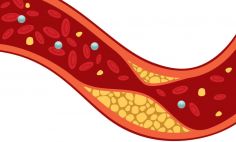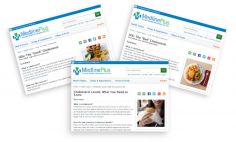
Jennifer Robinson, M.D.
Jennifer Robinson, M.D., studies cholesterol and cholesterol drug therapies with support from the National Heart, Lung, and Blood Institute. She spoke about new research and how people can reduce cholesterol to stay healthy now—and later on in life.
Can you tell us about new research in cholesterol?
We have begun to research how to prevent heart disease in patients under 40, which may reduce complications from heart disease in later adulthood. Preventing early atherosclerosis in young people is key. Atherosclerosis is the buildup of cholesterol on your artery walls. If left untreated, it can lead to a heart attack or stroke.
I have proposed a trial, called CURing Early ATHEROsclerosis (CURE ATHERO). It suggests that if we intensify treatment by reducing "bad" cholesterol, the low-density lipoprotein (LDL), with medications, we may be able to eliminate plaque in the arteries during its early stages of development.
Why is this significant?
If you can get the cholesterol levels at a healthy level by preventing other risk factors and encouraging healthy lifestyle behaviors early in life, you may be able to prevent or reduce the process from developing atherosclerosis in the first place. If we can lower the risk of early plaque development so atherosclerosis doesn't even start or further develop, this could help reduce heart disease.
What are other risk factors for high cholesterol?
Certain health conditions and lifestyle choices increase your risk for high cholesterol. These include type 2 diabetes, obesity, a diet high in saturated fat and trans fat, and smoking. There's also a genetic condition called familial hypercholesterolemia that affects about 1 in every 311 people. This condition causes very high LDL cholesterol levels beginning at a young age and must be treated with medication. If left untreated, the condition worsens as you get older. People with this condition are 20 times more likely to have a heart attack than the general population.
What can people do to reduce their risk of high cholesterol?
High cholesterol levels can be reduced or prevented for most people by eating a low-cholesterol, heart-healthy diet high in fruits, vegetables, whole grains, nuts, legumes, lean meat, and fish. You should also limit your intake of fried foods and foods that are high in saturated fats and cholesterol. Those include red meats, egg yolk, and certain oils, like lard (pork fat). Maintaining a healthy weight and exercise regularly is also key. Some people may need medications to lower their cholesterol if diet, exercise, and weight loss don't lower it enough.*
*Talk to your health care provider before stopping or starting a new diet or exercise routine.







